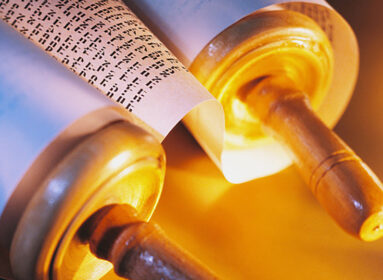
By Rabbi Tzvi Hersh Weinreb
It is a lesson I first learned in a course I took on the skills of interviewing long ago. The instructor taught us that the way to really size up a candidate for a job is to determine how he uses his time. He taught us that one question designed to assist the interviewer to make that determination is, “Where do you see yourself in five years?”
I have since had decades of interviewing experience in many diverse settings and have developed a set of other questions, all intended for the same objective. They include:
“What do you in your spare time?”
“How would you spend your time if you won the lottery and no longer had to work for a living?”
And, in academic or rabbinic interviewing,
“How would you use your time if you were given a sabbatical leave from your position?”
It is this last question which brings us to this week’s Torah portion, Behar. In the very beginning, we read of the mitzvah of letting the land lie fallow (unsown) every seven years, which is the sabbatical year; also known as shemitah. “But in the seventh year the land shall have a Sabbath of complete rest, a Sabbath of the Lord: you shall not sow your field or prune your vineyard.” (Leviticus 25:4)
The Torah spells out quite clearly what can and cannot be done in the way of tilling the soil. Indeed, there is an entire Tractate of Mishnah and Jerusalem Talmud which gives specific and detailed guidelines relating to the land and the produce of the shemitah year. I have always been intrigued and even a bit mystified, however, by the fact that, to my knowledge, nothing is said about what the farmer is supposed to do with his spare time that year.
Imagine a farmer who has been working industriously, 24/6, for six years. Then, as Rosh Hashanah of year seven approaches, very little work is permitted to him, and he becomes a gentleman of leisure. How does he use his time?
It is inspiring to note that there are pious farmers in Israel nowadays who scrupulously observe shemitah. And it is interesting that they indeed create structured programs for their “leisure” time that year. They study Torah, particularly the sections related to agriculture. They travel to farms across the country teaching less knowledgeable farmers halachot pertaining to farming. They even spend time updating their own technical agricultural skills.
There is a lesson to be learned here. The Torah legislates that the land needs a sabbatical year to lie fallow in order to renew itself. We must come to the realization ourselves that we too need a sabbatical year, but for us staying fallow is not our mission. Rather, it is to use such a time for physical, intellectual and spiritual reinvigoration.
The Torah continues to prescribe yet another “leisure” year, a sabbatical year after seven sabbaticals years, called the Jubilee year. “And you shall hallow the fiftieth year. You shall proclaim release throughout the land for all its inhabitants. It shall be a jubilee for you: each of you shall return to his holding and each of you shall return to his family.” (Levitivus 25:10) The personal, spiritual meaning of the fiftieth year of life was brought home to me recently. I have been re-visiting the writings of Hillel Zeitlin, a victim of the Holocaust. Zeitlin was a journalist, philosopher, and mystic who wrote a number of poems in the form of prayers, or perhaps prayers in the form of poems. One is entitled “On the Threshold of My Erev Shabbat”.
He writes in anticipation of his fiftieth birthday when he is about to enter the sixth decade of his life. “Life is like the days of the week, each decade a day. The seventh decade/day is our soul’s Sabbath, and we are granted but seven days. I am at the brink of Friday, Erev Shabbat, for my tired spirit. I pray that my Friday be a proper preparation, that I can use it for personal repair. For five days I have wandered, nay strayed. This day I hope to re-discover the path, and return before Sabbath Eve’s suns sets.”
The journey of Zeitlin’s life was a tortuous one, and its theme was perpetual search. He wandered from shtetl and cheder to Western European philosophy; from secular Zionism to Chassidism; from Warsaw’s literary circles to its shtieblach; and ultimately to Treblinka. But his poetry, especially the one I translated above, displays an exquisite time-consciousness, an awareness of how fleeting our lives are, and we must work hard to fill them with meaning.
Every seventh year is a sabbatical for the soul, and every fiftieth year, a time to recognize that we are past the zenith of our arc of life.
Fortunately, we have an even more frequent gift of time, and it is our weekly Sabbatical, Shabbat Kodesh, the Holy Sabbath. In the cycles characterized by the number seven, we have seven years, seven sets of seven years, and the seven days of the week. Jewish mysticism offers us a multitude of meanings for the number seven, but this much is not mysterious: There is a rhythm to our lives, and part of that rhythm calls for regular times for reflection and renewal. The intervals between such moments vary greatly in their duration. It is up for us to make the most of those moments, whether they last a day or a year.
I once heard a wise man, Rav Elya Lapian, say: “Modern man is convinced that ‘time is money’. Spiritual man knows that ‘time is life.’”
Rabbi Tzvi Hersh Weinreb is executive vice president, emeritus of the Orthodox Union.







 Southern New England Jewish Ledger
Southern New England Jewish Ledger














